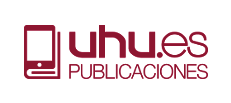Literary reading in Spanish as a foreign language (S/FL) classes in Brazil.
Keywords:
Abstract
We understand that the literary text (LT) provides the student with a familiarity with the forms and uses of the language studied, in addition to the chance to acquire practical, functional, communicative, cultural, discursive and literary knowledge. With this, it can be a strong ally for the success of teaching and learning foreign languages, in order to develop the communicative and especially reading competence of language learners. In Brazil, it has already taken fifteen years of teaching, research, extension and practices for the inclusion of literature in Spanish language classes, considering the activities carried out in the Research Group LEER - Literature: Study, Teaching and (Re)reading of the world (Grupo de Pesquisa LEER - Literatura: Estudo, Ensino e (Re)leitura do mundo), at the Research Center of Teaching and Languages (Núcleo de Pesquisa em Ensino e Linguagens - NUPEL) and at the Federal Institute of Education, Science and Technology of Rio Grande do Norte (IFRN). This article presents data from a survey conducted with twenty-seven public school high school students in Brazil and a Spanish language teacher from these classes and aimed to investigate the perceptions of students after participation in a systematic work of literary reading practices in Spanish in Brazilian High School. The instruments that served as the basis for our reflections were: the class observation protocols carried out by the researcher, as well as the students' responses to the evaluation questionnaire applied at the end of the school year. After carrying out our study, we noticed that the students began to have more confidence and feel more capable to understand and interpret texts in Spanish. We also point out that, for most of the participating students, the novel was the text chosen as the one they liked the most, followed by theater, poetry and short story, respectively.
Downloads
Altmetrics
References
Acquaroni, R. (2007). Las palabras que no se lleva el viento: literatura y enseñanza de español como LE/L2. Santillana Educación.
Albaladejo, M. D. G. (2007). Cómo llevar la literatura al aula de ELE: de la teoría a la práctica. In MarcoELE. Revista de didáctica ELE, 5, http://marcoele.com/num/5/02e3c099fc0b38904/albaladejo.pdf.
Andrade, M. M. (2010). Introdução à metodologia do trabalho científico. 10 ª ed. Atlas.
Aragão, C. O. (2006). Todos maestros y todos aprendices: La literatura en formación de los profesores de E/LE tratada como Objeto de estudio, Recurso para la enseñanza y Formadora de lectores. (tese). Universitat de Barcelona.
Chou, M. H. (2022). Using literature circles to teach graded readers in English: an investigation into reading performance and strategy use. Innovation in Language Learning and Teaching, 16(2), 144-163. https://doi.org/10.1080/17501229.2021.1885412
Collie, J. e Slater, S. (1987). Literature in the language classroom: a resource book of ideas and activities. Cambridge University press.
Cosson, R. (2006) Letramento Literário: teoria e prática. Contexto.
Cosson, R. (2014). Círculos de leitura e letramento literário. Contexto.
Gil, A. C. (2010). Como elaborar projetos de pesquisa. 5ª ed. Atlas.
Jouve, V. (2012). Por que estudar literatura? Tradução de Marcos Bagno e Marcos Marcionilo. Parábola.
Lazar, G. (2005). Literature and Language Teaching: a guide for Teachers and Trainers. Cambridge Univerdity Press.
LeBlanc, R. J. (2021). Literary theory across genre chains: intertextual traces in reading/writing/talking literary theory in the high school classroom. English in Education, 55(2), 177-200. https://doi.org/10.1080/04250494.2020.1730175
Marconi, M. A. & Lakatos, E. M. (2005). Fundamentos da metodologia científica. 6 ed. Atlas.
Mendoza, A. F. (2007). Materiales literarios en el aprendizaje de lengua extranjera. In Cuadernos de Educación 55. Horsori.
Mendoza, A. F. (2004). La educación literaria: bases para la formación de la competencia lecto-literaria. Aljibe.
Mendoza, A. F. (2002). El proceso lector: la interacción entre competencias y experiencias lectoras. En Lima Moreira, G. y Eres Fernández, G. (Coord.). La seducción de la lectura en edades tempranas. Ministerio de Educación, Cultura y Deporte. pp.101-137.
Mendoza, A. F. (2002). Tú, lector. Aspectos de la interacción texto-lector en el proceso de lectura. Octaedro.
Mussa, S., & Fente, G. (2020). The appropriateness of literary texts in teaching reading skills: The case of some selected high schools in Ethiopia. Theory and Practice in Language Studies, 10(10), 1200-1209. https://doi.org/10.17507/tpls.1010.03
Rudio, F.V. (1986). Introdução ao projeto de pesquisa científica. Vozes.
Sánchez-Fortún, J. M. (2007) La formación de actitudes lectores en el desarrollo de competencia literaria: un estudio exploratorio. Lenguaje y textos, 26, 247-264.
Sánchez-Fortún, J. M. (2002) Literatura infantil: teoría y práctica. Grupo Editorial Universitario.
Sanz, M. (2006). Didáctica de la literatura: el contexto en el texto y el texto en el contexto. Carabela, 59, 5-23.
Spann, H., & Wagner, T. (2023). Reading habits and attitudes in first-year EFL student teachers and their implications for literature course design in an Austrian study programme. Language, Culture and Curriculum, 36(2), 240-256. https://doi.org/10.1080/07908318.2022.2138425
Siepmann, P. (2023). The literary portfolio: Summative assessment of literary competences in autonomous learning environments. TESOL Journal, e702. https://doi.org/10.1002/tesj.702
Silva, G. M. (2011). O uso do texto literário nas aulas de espanhol no ensino médio de escolas públicas de Fortaleza: relação entre as crenças e a prática docente de egressos da UECE. Dissertação (Mestrado Acadêmico em Linguística Aplicada). Universidade Estadual do Ceará, Fortaleza.
Silva, G. M. (2016). Literatura, leitura e escola: um estudo sobre o desenvolvimento de habilidades de compreensão leitora e da competência literária de alunos de língua espanhola do ensino médio de uma escola pública. Tese (Doutorado). Universidade Estadual do Ceará, Fortaleza.
Silva, G. M. (2022). Leitura literária no ensino de língua espanhola: um estudo sobre o desenvolvimento de habilidades de compreensão leitora e da competência literária de alunos do ensino médio. Diacrítica, Natal/RN, 36(2), 277–299. https://doi.org/10.21814/diacritica.4820
Smith, F. (1999). Leitura significativa. Tradução Beatriz Affonso Neves. 3ª Ed. Artes Médicas.
Solé, I. (1998). Estratégias de leitura. Artmed.

By submitting a proposal, the author agrees to the following terms:
- a) The author retains the authorship rights, granting the journal the right of first publication of the work.
- b) The texts will be disseminated with the Creative attribution license Commons 4.0. BY that allows you to share, copy and redistribute the material in any medium or format, as well as adapt, remix, transform and build on the material for any purpose, including commercially.







